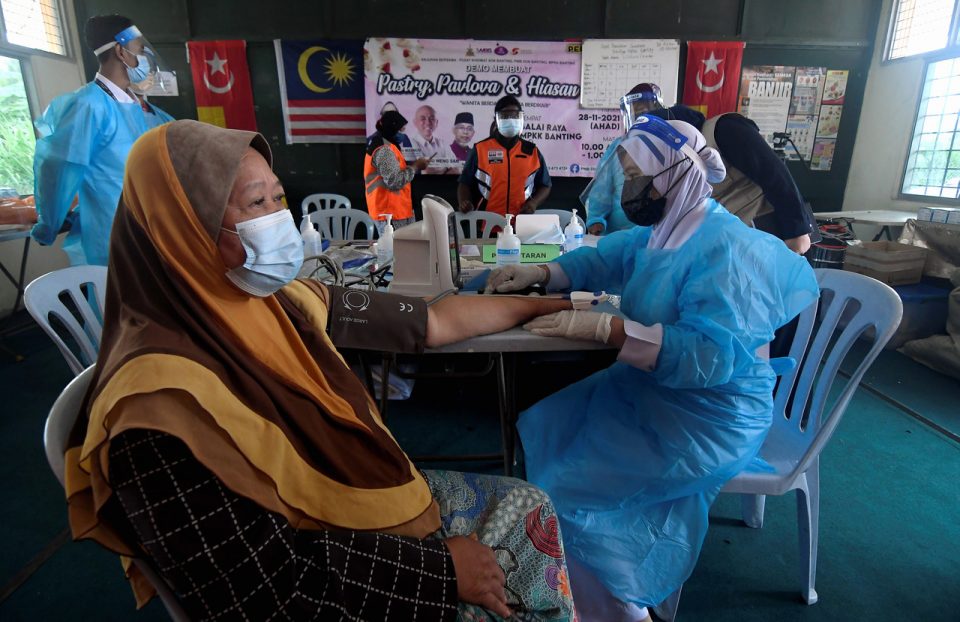PUTRAJAYA, April 28 — The Health Ministry (MOH) can focus on managing the non-communicable diseases (NCDs) epidemic now that the Covid-19 pandemic has been brought under control, said Health Minister Khairy Jamaluddin.
He said although the Covid-19 pandemic was an emergency from the public health aspect, it is only for a short period compared to NCDs which are more long term in nature.
“If we are infected with Covid-19, we see the symptoms in three or four days, but if we have NCDs, the symptoms or ill effects may only be seen in the next few years,” he said at the launch of the B40 Healthcare Scheme Report (PeKa B40) 2021 here today.
“Covid-19 is a clear and present danger to us but NCDs are like a ticking bomb; it is there but will explode one day and when it does (explode) it will be too late as we need to take care or treat it. We cannot take action to prevent the NCDs from becoming worse for the people,” he said.
According to Khairy, the National Health and Morbidity Survey (NHMS) 2019 reported that NCDs accounted for 67 per cent of premature deaths.
The NHMS report said one out of five adults or 3.9 million people aged 18 and above in Malaysia suffers from diabetes, three out of 10 or 6.4 million people have high blood pressure and four out of 10 people or eight million people suffer from high cholesterol, he said.
Therefore, Khairy said regular health screening was able to detect an NCD earlier, and then intervention and treatment could be given before a disease became more serious or severe.
He said the Skim PeKa B40, a government initiative under the MOH and run by ProtectHealth Corporation Sdn Bhd, was aimed at addressing the growing burden of NCDs, especially among the B40 group. From its introduction in 2019 until March 31 this year, PeKa B40 has screened 582,746 people.
The main focus of the initiative is early prevention strategies through four health benefits offered, namely free health screening, medical device assistance, incentives to complete cancer treatment and transportation incentives, he said.
“Most of them (who were screened) did not know that they were suffering from a disease or chronic illness that could be treated through the MOH. Of those screened, 186,610 people were detected to have at least one NCD.
“This (matter) is very worrying because there are many who are eligible for the PeKa B40 but do not come forward to do the health screenings and they do not know their health status,” he added.
Meanwhile, ProtectHealth Corporation Sdn Bhd chief executive officer Datuk Dr Anas Alam Faizli said the three highest NCDs in the B40 group are high blood pressure, cholesterol and diabetes.
For the medical device assistance benefit, from 2019 to Dec 31, 2021, a total of 30,864 applications were approved for surgical and non-surgical equipment.
“Intraocular lens recorded the highest applications at 41.7 per cent of the total applications, followed by hearing aids (22.5 per cent) and cardiac stents at 6.7 per cent,” he said.
For the incentive to complete cancer treatment benefits, 4,721 applications were approved for 2021.
Dr Anas said the top three types of cancer detected throughout 2021 were breast cancer, followed by digestive system cancer, and ear, nose and throat cancer.
— Bernama





